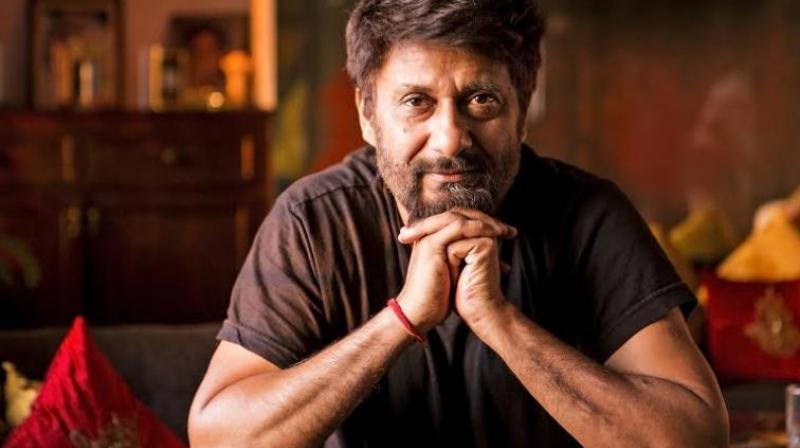#MetooUrbanNaxal trends as anger peaks

Hyderabad: The hashtag #MetooUrbanNaxal was trending across social media on Wednesday as a mark of protest against director Vivek Agnihotri’s tweet asking people to make a list of all those who were defending the human rights activists arrested on Tuesday.
In a quick rebuttal to the request, the #MetooUrbanNaxal campaign was initiated by Alt News founder Pratik Sinha, aimed at removing fear of being labelled Urban Naxal, if they spoke out against the arrests.
Following the arrests of the rights activists on Tuesday, Agnihotri in a tweet called upon “bright young people” to make a list of people “defending Urban Naxals”. This triggered a storm of tweets between right-wing thinkers like Agnihotri and people who expressed dissent.
Sinha speaking to this newspaper said, “I know that the Urban Naxal phrase has been going on for some time. I realised that it is going to be used again and again and it is the new ‘anti-national’. I realized that what needs to be done is, turn it into a joke and ridicule it. There is a sort of effort being made to create the phrase urban naxal. So I wanted it to be a joke and started the #MetooUrbanNaxal campaign.”
He added that there was a fear that people would be branded anti-national, now there is a new fear of being branded as Urban Naxal and when so many people say that #MeTooUrbanNaxal, essentially you are trying to take the fear away from the word.
This campaign received the attention of twitterati with thousands of users calling themselves Urban Naxals in an attempt to defend activists Vernon Gonzalves, Arun Ferreira, Sudha Bhardwaj, poet Varavara Rao, Father Stan Swamy and journalist Gautam Navalakha. However, Agnihotri said that the term anti-national and Urban Naxal cannot be the same, because Urban Naxals are only those people who were being funded, got organizational support, or who were part of the strategy to change the fate of India.
Agnihotri speaking to this newspaper said, “Political leaders, without any barriers have called it the biggest internal security threat. There is no party which disagrees that urban Naxalism and Naxalism indeed is the biggest internal security threat to India.”
The result of the day-long campaign was that many people believe that to express dissent was to be an ‘Urban Naxal’.
While the tweets reduced the term Urban Naxal to a person who shows dissent, Agnihotri did not agree. He said, “If it is about dissent, then the opposition, people speaking against the government should be thrown in jail, which is not the case.”

